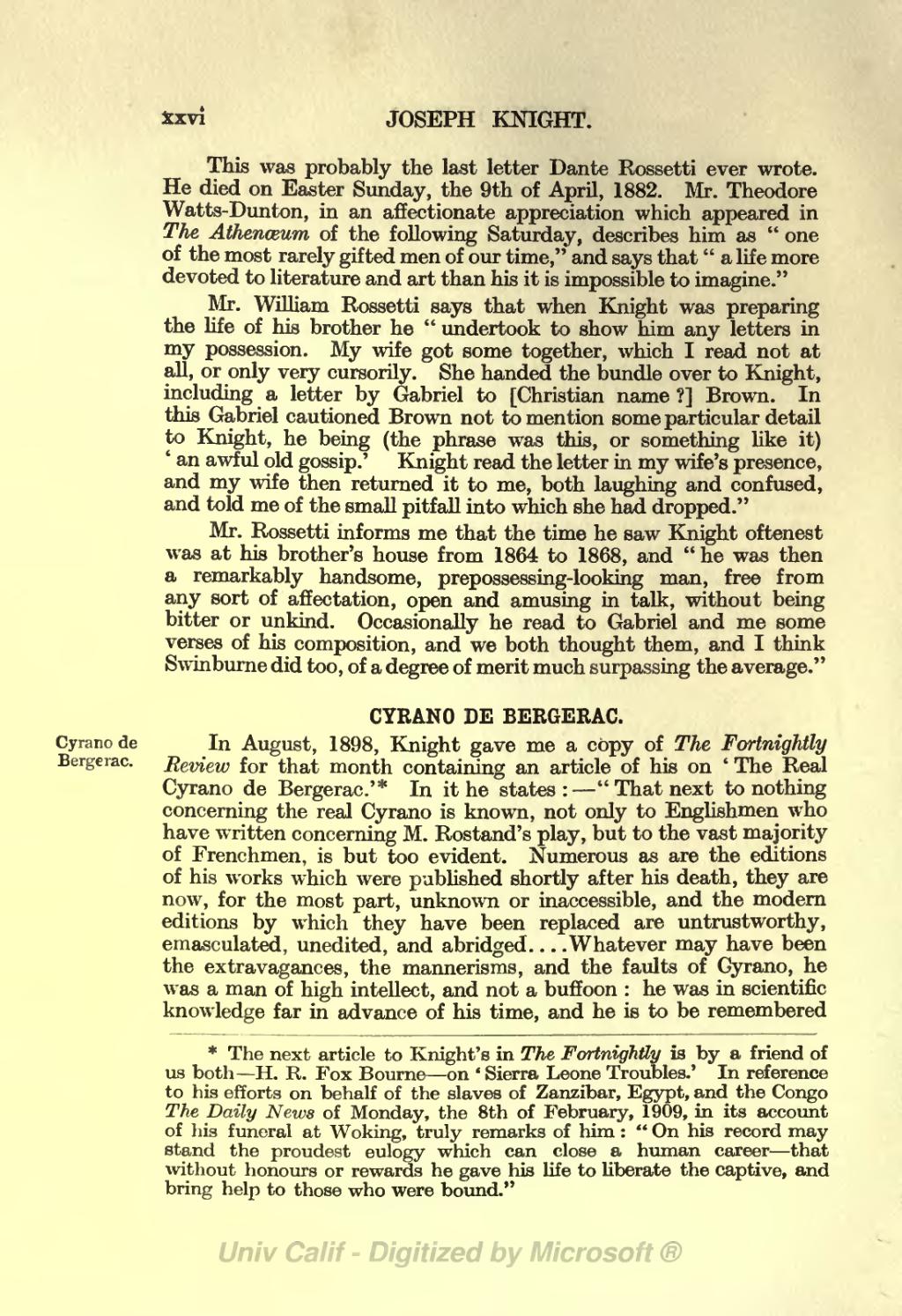JOSEPH KNIGHT.
This was probably the last letter Dante Rossetti ever wrote. He died on Easter Sunday, the 9th of April, 1882. Mr. Theodore Watts-Dunton, in an affectionate appreciation which appeared in The Athenæum of the following Saturday, describes him as "one of the most rarely gifted men of our time," and says that "a life more devoted to literature and art than his it is impossible to imagine."
Mr. William Rossetti says that when Knight was preparing the life of his brother he "undertook to show him any letters in my possession. My wife got some together, which I read not at all, or only very cursorily. She handed the bundle over to Knight, including a letter by Gabriel to [Christian name ?] Brown. In this Gabriel cautioned Brown not to mention some particular detail to Knight, he being (the phrase was this, or something like it) 'an awful old gossip.' Knight read the letter in my wife's presence, and my wife then returned it to me, both laughing and confused, and told me of the small pitfall into which she had dropped."
Mr. Rossetti informs me that the time he saw Knight oftenest was at his brother's house from 1864 to 1868, and "he was then a remarkably handsome, prepossessing-looking man, free from any sort of affectation, open and amusing in talk, without being bitter or unkind. Occasionally he read to Gabriel and me some verses of his composition, and we both thought them, and I think Swinburne did too, of a degree of merit much surpassing the average."
CYRANO DE BERGERAC.
Cyrano de
Bergerac.In August, 1898, Knight gave me a copy of The Fortnightly Review for that month containing an article of his on 'The Real Cyrano de Bergerac.'[1] In it he states:—"That next to nothing
concerning the real Cyrano is known, not only to Englishmen who have written concerning M. Rostand's play, but to the vast majority of Frenchmen, is but too evident. Numerous as are the editions of his works which were published shortly after his death, they are now, for the most part, unknown or inaccessible, and the modern editions by which they have been replaced are untrustworthy, emasculated, unedited, and abridged. . . . Whatever may have been the extravagances, the mannerisms, and the faults of Cyrano, he was a man of high intellect, and not a buffoon: he was in scientific knowledge far in advance of his time, and he is to be remembered
- ↑ The next article to Knight's in The Fortnightly is by a friend of us both—H. R. Fox Bourne—on 'Sierra Leone Troubles.' In reference to his efforts on behalf of the slaves of Zanzibar, Egypt, and the Congo The Daily News of Monday, the 8th of February, 1909, in its account of his funeral at Woking, truly remarks of him: "On his record may stand the proudest eulogy which can close a human career that without honours or rewards he gave his life to liberate the captive, and bring help to those who were bound."
